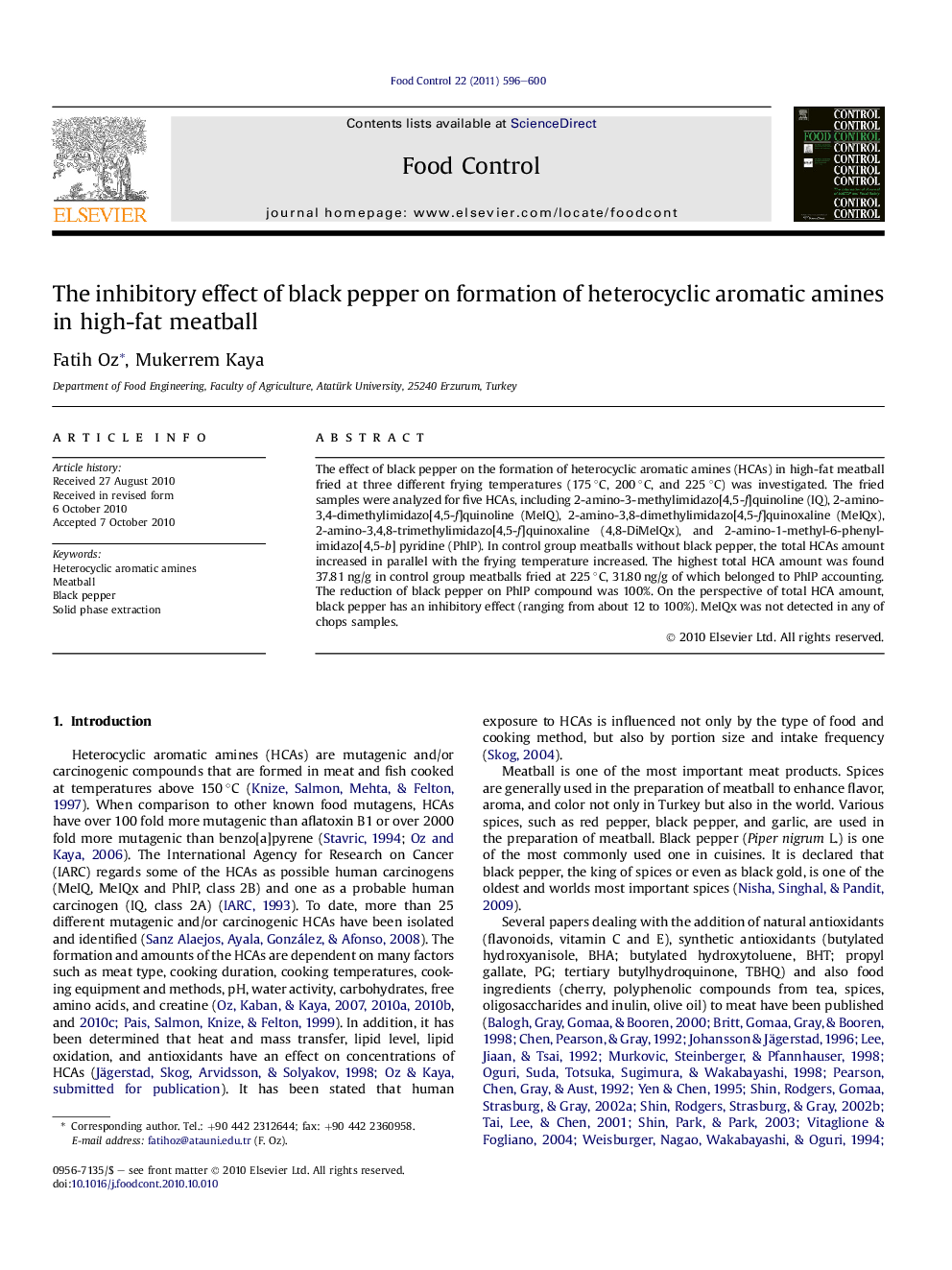| کد مقاله | کد نشریه | سال انتشار | مقاله انگلیسی | نسخه تمام متن |
|---|---|---|---|---|
| 4559698 | 1628428 | 2011 | 5 صفحه PDF | دانلود رایگان |

The effect of black pepper on the formation of heterocyclic aromatic amines (HCAs) in high-fat meatball fried at three different frying temperatures (175 °C, 200 °C, and 225 °C) was investigated. The fried samples were analyzed for five HCAs, including 2-amino-3-methylimidazo[4,5-f]quinoline (IQ), 2-amino-3,4-dimethylimidazo[4,5-f]quinoline (MeIQ), 2-amino-3,8-dimethylimidazo[4,5-f]quinoxaline (MeIQx), 2-amino-3,4,8-trimethylimidazo[4,5-f]quinoxaline (4,8-DiMeIQx), and 2-amino-1-methyl-6-phenylimidazo[4,5-b] pyridine (PhIP). In control group meatballs without black pepper, the total HCAs amount increased in parallel with the frying temperature increased. The highest total HCA amount was found 37.81 ng/g in control group meatballs fried at 225 °C, 31.80 ng/g of which belonged to PhIP accounting. The reduction of black pepper on PhIP compound was 100%. On the perspective of total HCA amount, black pepper has an inhibitory effect (ranging from about 12 to 100%). MeIQx was not detected in any of chops samples.
Journal: Food Control - Volume 22, Issues 3–4, March–April 2011, Pages 596–600